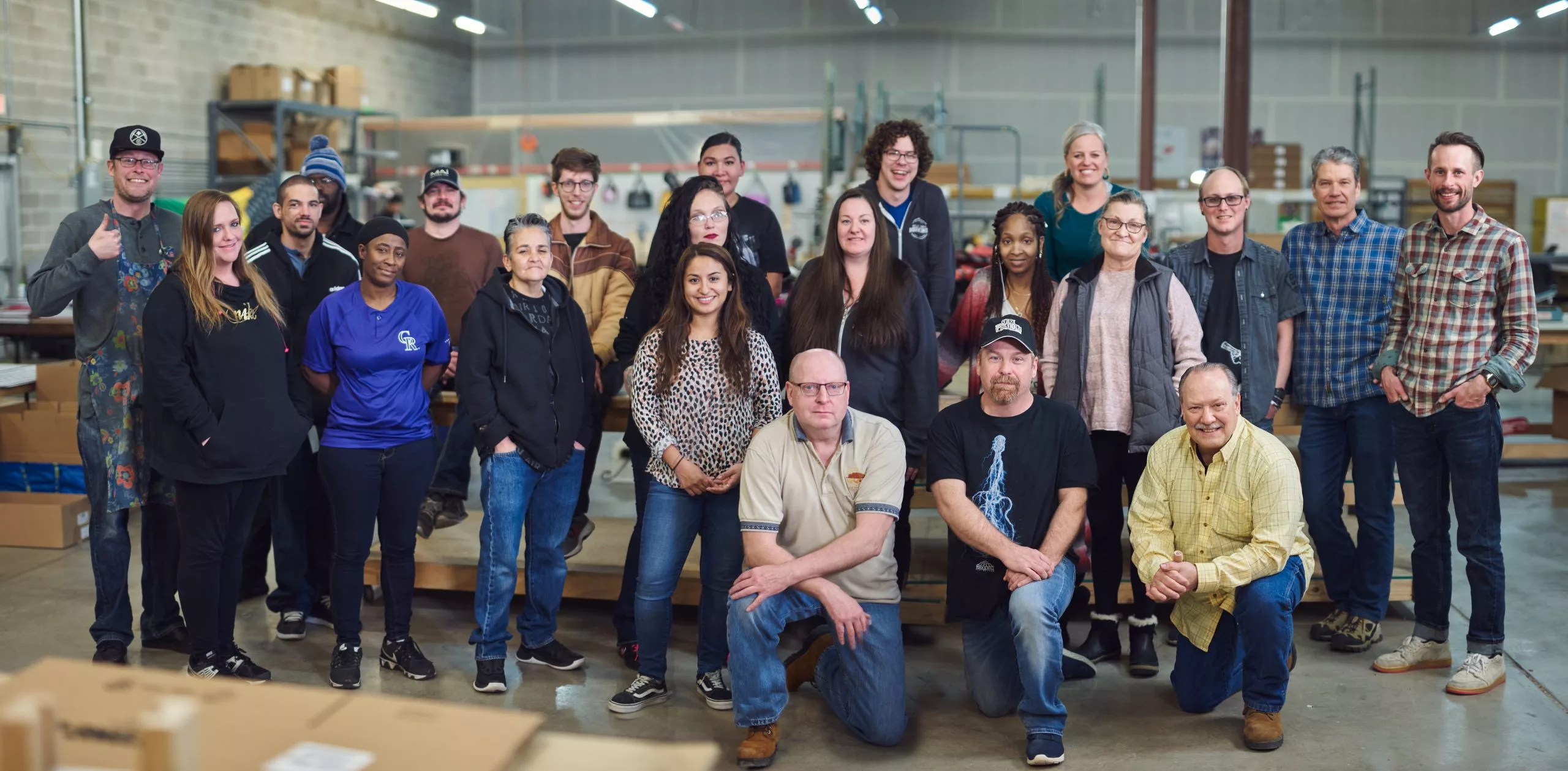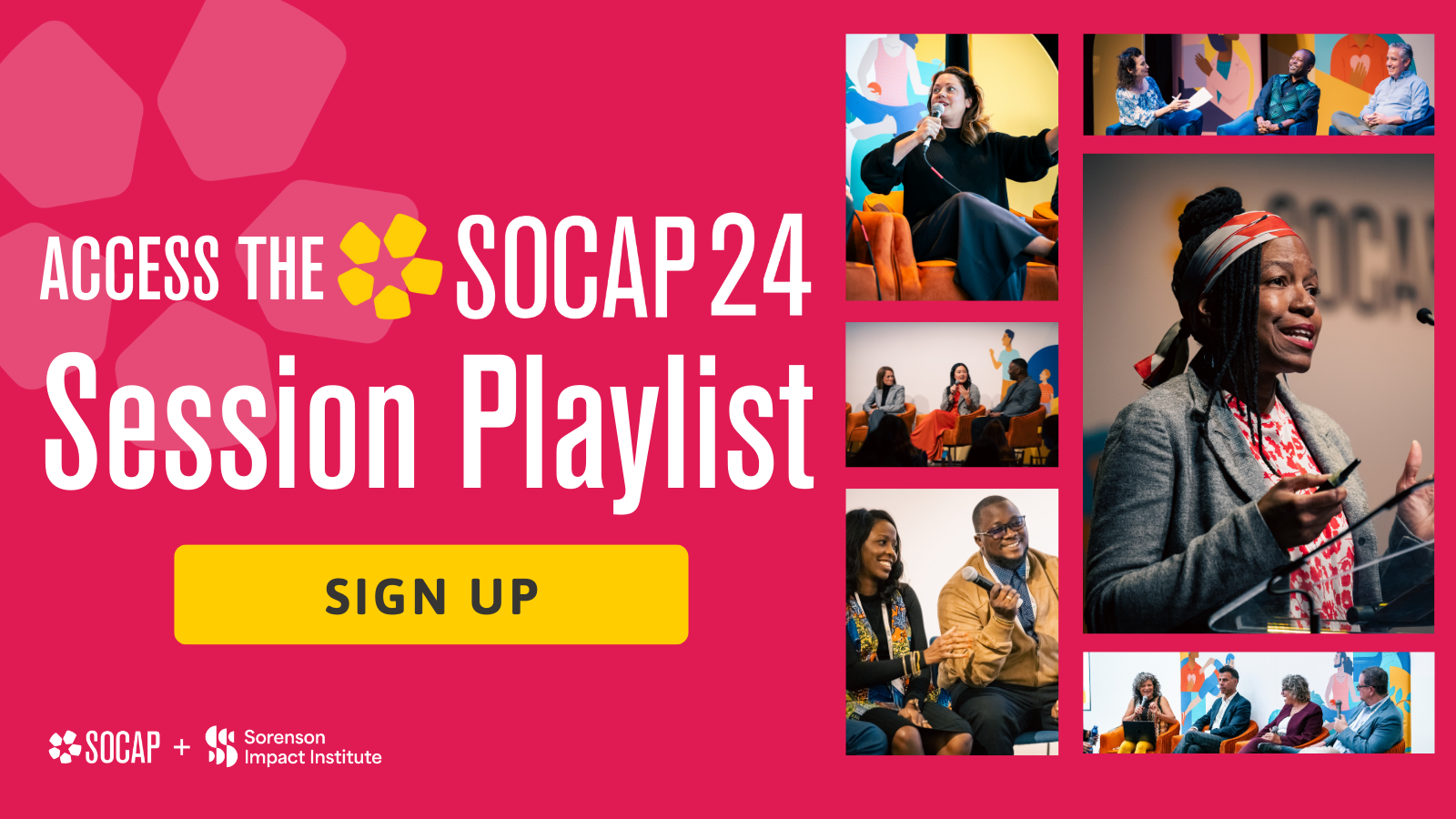I’m interested in the inspiration behind Mile High Workshop. What is its birth story?
The long version starts when I was in college in the Pacific Northwest. I volunteered with a group that went downtown to the rescue mission and passed out hot chocolate and hung out with guys who were waiting in the rain to get a bed for the night. I ended up making a bunch of friends who were on the street and working to get them back on their feet. What I heard, again and again, was the need for a bridge from shelter life back into mainstream society and a supportive job seemed like an important piece of that process.
I moved to Denver in 2006 where I tried a few different things; threw a bunch of business plans into the recycling bin; worked for some other nonprofits and learned about the needs and opportunities for a while but couldn’t figure out how to turn my dream into reality. Fast forward to 2014 and I had the opportunity to partner with an existing nonprofit and start what has become the Mile High WorkShop. We messed around with the model a lot (delivered water, made soap, catered food, and more) but, after about a year, I realized that the contract production relationship provides lots of mutual benefit in the community, and I have been pursuing it ever since.
Any stories or insights on getting started?
Yeah, I’ve got plenty of “blood, sweat, and tears” stories! I think my most helpful piece of advice from my own experience is to remember that you’re not alone. As a founder, it’s easy to get tunnel vision and think you’re the only one that can execute the vision. But the opposite is true: if you want to build something that’s sustainable and beneficial to the community you serve, you have to involve other people. What you build will be better with more voices than your own and your impact will be more significant and long-lasting.
What are your values at Mile High Workshop?
If I had to summarize the ethos behind our work, I’d say that we believe every person has value and goodness within them that can never be extinguished. Sometimes it gets lost or buried, but our work is to help people see this spark of life and love inside of themselves and live from a place of wholeness and possibility.
Formally, our values are structured around the idea of GRACE, which is a concept that we believe carries the dignifying and redemptive qualities we seek to exude in our work.
Growing Everyday: We are diligent in becoming the best version of ourselves.
Responsible to Each Other: We succeed as a team and continually strive to build trust.
Acting with Integrity: We are honest and reliable in our interactions.
Community of Peace: We cultivate a love-filled space with compassion and respect for all.
Excellence in Our Work: Whether with people or products, we seek quality outcomes.
Can you elaborate on the structure of your organization’s model and how your Mile High Workshop operates?
Our organization has two primary areas of focus — supporting men and women who are rebuilding from prison, addictions and/or homelessness, and serving our business partners through contract production partnerships.
To use a real-world example, we partner with KONG, the dog toy company that is based in Colorado. KONG pays us to quality check and package around 30,000 dog toys each month. We use this business activity to employ and train our program participants who are reentering mainstream society. We might be their first job ever or we might be the first job after a long prison sentence. While a participant is working on KONG production, they will also work with our team to secure housing and overcome other material barriers that are preventing them from sustainable living. We will also support their spiritual and emotional health as they work to find themselves and their path for the future. Our goal is to help them transition to a new career as a more equipped and healthy person than when they first entered the program.
How has COVID-19 impacted your mission and work? How have you adapted and seen your community adapt?
When the pandemic hit, our first commitment was to our current team. We made the choice not to lay anyone off because supporting people is our entire reason for existing and we couldn’t justify letting anyone go when times were tough. We quickly realized that there was a massive need for PPE in our community and began exploring ways we could pitch in. The first thing we did was to donate 4,600 N95 masks to the city of Denver. Next, the director of our sewing operations created a sample cloth face mask and we decided to pursue that opportunity. Since then we’ve been donating 50% of all masks we’ve sewed. We’ve produced thousands of masks and have been fortunate to donate to many organizations doing work on the front lines with very vulnerable populations.
We’ve certainly had to adapt the way we do our work in many ways, but our values are unchanged. If they were true pre-pandemic, they’re still true today. We believe in love and we intend to give it away whether it’s in person or digitally. Also, our mission is unchanged: We exist to support men and women as they transition into work and wholeness. That got a little harder to do, but we’re committed to serving our people well, even as our means of doing so are rapidly changing.
Do you have any quick stats or numbers you’re proud of that measure the impact Mile High Workshop has had on the community?
In the last 6 years, we’ve had the opportunity to employ and train over 150 men and women who are on a path to healthy living.
Most of those hires have happened in the last few years as we’ve grown and we’re so honored to have played a role in everyone’s life as they step into a new life. All the evidence in the world shows that a job (otherwise known as a reason to be hopeful) is a significant success factor when someone is rebuilding their life and we’ve seen that firsthand. Recidivism rates in Colorado hover just under 50% but we’ve been able to stay in the single digits as an organization and are grateful to support folks as they maintain their freedom.
Anything exciting ton the horizon?
Of course! We just launched an exciting new campaign called the Second Chance Series. A group of local marketing professionals called Ad2Colorado designed the campaign for us for free. They actually won First Place for their work and we’re really grateful for their investment in our mission!
Also on the horizon, we’re on the hunt for an additional business partner customer and we can’t wait to see who it’s going to be. We’ve worked with some incredible brands like Adidas, Vans, Adobe, KONG, National Geographic, Charlotte’s Web and so many more and we’re excited to bring a new project into the shop. We’ll get to do new work and create new training opportunities as a result. Anyone interested in exploring the opportunity can find out more on our website.
What does “conscious leadership” mean to you? Do you have any best practices to help yourself become and embody conscious leadership?
To me, the idea of conscious leadership implies that you’re aware of yourself and your environment. I think it includes being vulnerable and authentic with yourself and the people around you. To contrast the idea, I think the opposite would be a leader who knows everything, doesn’t understand themselves or their motivations and leads through power. Conscious leaders are aware of the fact that they operate in whole systems while leading multi-dimensional human beings and behave in a way that honors all of those things.
My best practises on that front involved creating space for reading, prayer, mediation and some pretty lousy yoga 🙂 I’ve never been very flexible…
What is the most important thing in your life right now?
The most important thing in my life right now and always is living openly and authentically, fully connected, and aware of the love in my life.
What is the largest challenge that you’re facing right now?
One of our biggest challenges at the moment is that it feels impossible to plan. So much is shifting in our world right now that it’s virtually impossible to know what will happen in the next six months. Our organization is scrappy and flexible, but this current season is putting every business and nonprofit to the test!
Additionally, I would add that the ongoing burden of living in such a tumultuous world can’t be understated. For many in our community, life was already unbalanced pre-pandemic so maintaining sobriety or living in a group home is just extra challenging right now. Our crew is fighting hard, but it’s a difficult landscape for all of us and it feels important to acknowledge that there’s an emotional toll that we’re collectively bearing.
What is giving you hope for the future?
There’s so much energy in the air these days! Sometimes it can feel overwhelming and some people are afraid of change but I feel so hopeful that the health concerns and racial injustices that we’re processing as a community right now will give birth to something much more beautiful for all of us. There’s some heavy lifting for all of us to do and immense suffering we must engage with fully, but there’s real reason for optimism as we navigate this season together.
Top 3 lessons for non-profit leaders (or others in similar industries/models)?
- Connect with others in your community who are engaged in similar work.
- Take care of yourself and maintain emotional and spiritual health.
- Never lose touch with the mission.







